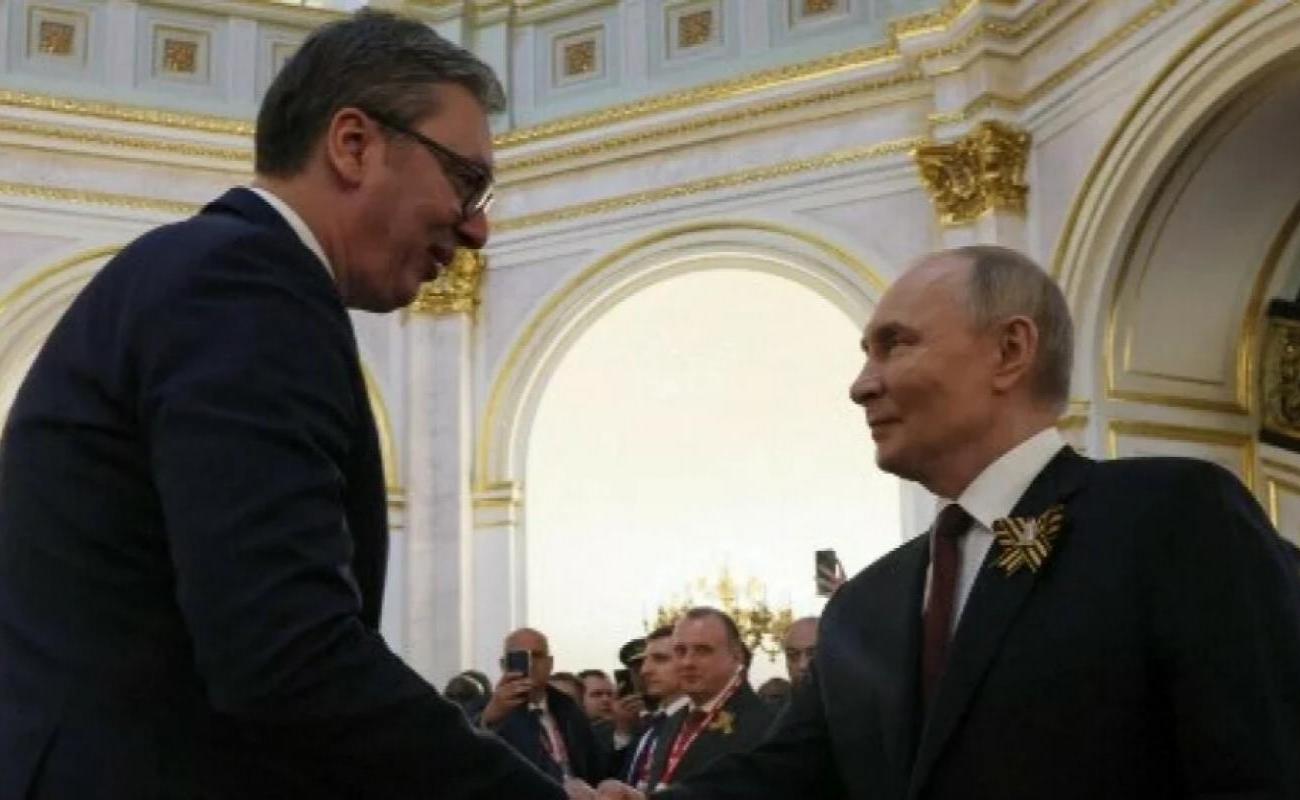Vučić's "heroic" visit to Moscow clearly showed what he is doing now: "We will soon see the consequences..."

Serbian President Aleksandar Vučić's visit to Moscow, at a time of sensitive international circumstances and domestic pressures, has sparked a range of reactions. Analysts explain the political and symbolic messages the visit carries.
For weeks, the regime media in Serbia presented Aleksandar Vučić's visit to Moscow as a geopolitical turning point. In reality, it was a visit that revealed more than it concealed – the weaknesses of Vučić's foreign policy, his balance between East and West, but also the increasingly vocal dissatisfaction coming from Brussels.
After a failed attempt to visit the United States, where he failed to arrange a meeting with US President Donald Trump, Vučić decided that this time he could not avoid going to Moscow.
His absence from the previous BRICS summit had already raised suspicions, and the current calculation, according to political analyst Đorđe Vukadinović for Deutsche Welle, was clear:
"Otherwise, his policy of wise balancing, as his supporters see it, or of sitting on three chairs, as his critics describe it, would fall apart."
It was precisely this policy of balancing – between Brussels, Moscow and Washington – that was put to the test again. Vučić failed to achieve a "hat-trick" with Trump, Putin and Xi, but two of the three great leaders were available to him in Moscow. Enough for the domestic tabloids to write about the "statesman's tour" and Vučić's alleged reputation in the world.
However, the unease could not be hidden. "I hope that Fico will come, so that I will not be the only European president here," Vučić said in Moscow, revealing his own insecurity, but also the reality of the international isolation in which he increasingly finds himself.
The director of the Institute for European Affairs Naim Leo Beširi harshly assesses that by coming to Moscow, Vučić has shown where he really belongs.
"There are dictators and autocrats in Moscow, and thus Vučić justifies the radical image from the 1990s. Now it is clear to everyone that the talk of European integration is a simple deception to stay in power as long as possible. We will soon see the consequences of such a policy of the Serbian regime," said Beširi.
"Putin and Russia, whatever they may be, are incomparably more popular among the Serbian public than Tonino Picula and Ursula von der Leyen," Vukadinović notes and adds.
"This is a reality that the Western, but also the Serbian public, is reluctant to face. So the visit also has marketing value for Vučić, which can serve to mobilize his electorate. And 90 percent of the supporters of the Serbian Progressive Party are pro-Russian.
On the other hand, Beširi warns of the consequences of this PR tour, which was supposed to show Vučić's greatness as a statesman.
"Inflation is already erasing some of the economic progress that Serbia has made, and the shameful fact that Vučić salutes Russian soldiers in Moscow will not be easily forgotten in many European countries."
Brussels has not reacted decisively for now. Vukadinović believes that the European Union, apart from harsh messages, currently has no real leverage over the Serbian government.
"Serbia's European path is practically at a standstill, and it seems that no one in the current government cares much about it," Vukadinović points out.
Vučić's message from Moscow – that "the consequences will be for me personally" – is interpreted as an attempt to emotionally mobilize voters. "A narcissistic need to show that only he matters," says Beširi.
Meanwhile, student protests in Serbia are not abating. Vučić responded to the demand for early elections from the Russian stage with a sarcastic remark.
"It will happen when the incompetent competent body signs it."
Vukadinović believes that the opposition has already lost the initiative.
"Now that decision depends on Vučić, not on political pressure. I think that any entry into the elections, without changing the entire political process, is too much of a risk – whether it concerns students or opposition parties," Vukadinović concludes.
Aleksandar Vučić has once again positioned himself as the sole interpreter and decision-maker – between Putin and Picula, between East and West, but also between the Serbian public and the international consequences that could soon follow.
